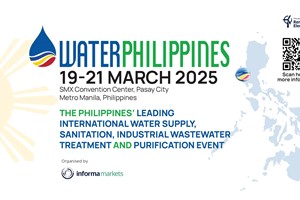Successful premiere: on 15 July, the IFAT network kicked off a new digital information format: the “IFAT impact Panel Discussion” gathered top-level experts from politics and environmental economics who discussed the links between COVID-19, the Green Deal and a consistent circular economy. “The coronavirus crisis will pass, but the environmental problems will remain,” explained Stefan Rummel, Managing Director of Messe München, opening the digital IFAT impact Panel Discussion on “Environmental technologies in times of the coronavirus—and beyond: accelerators for an ecologically sustainable economy.” In her video statement, Germany’s Environment Minister Svenja Schulze expressed her optimism: “The Commission’s European Green Deal can restructure our economy to make the Europe of the future climate neutral, more resource efficient and more competitive.” Virginijus Sinkevičius, EU Commissioner for Environment, Oceans and Fisheries, is also convinced of the Green Deal’s effectiveness as stated in his video message: it has the potential to decouple future economic growth from resource consumption.
Regulation, regulation, regulation
The six-member panel from politics and economy agreed that for the Green Deal and Circular Economy Action Plan to succeed it is necessary to have legal regulations that are strong, intelligent and reliable in the long term. Dr. Christoph Epping, Head of “Resource Conservation, Circular Economy” at the Federal Environment Ministry pointed out that this would first require to determine who is responsible for closing the desired loops. “For example, should the car industry be obliged to use recyclates? Or should the public sector take responsibility? Or should the producers that market goods be made responsible?” Epping asked. While in Europe all these paths were conceivable, he believes that in other parts of the world—due to the lack of appropriate infrastructure—it would only make sense that producers take responsibility. The importance of political initiatives and regulations was also underlined by a survey among the online audience: 58 percent of the participants rated them as the most important drivers of the environmental technology market in the coming years.
Coronavirus slows down green founders
William Neale, Adviser for Circular Economy at the European Commission's Directorate-General for Environment, stated that he does not expect the COVID-19 pandemic to pose any significant obstacles to the political path taken with the Green Deal and the Circular Economy Action Plan. Dr. Sebastian Porkert, Managing Director of Ecofario, a Munich-based start-up specializing in the filtration of microplastics and pollutants, evaluated the current situation differently—especially for young companies: “The coronavirus crisis has significantly slowed down green founders: on the one hand because the investment behavior decreased, on the other hand due to a lack of networking opportunities.”











